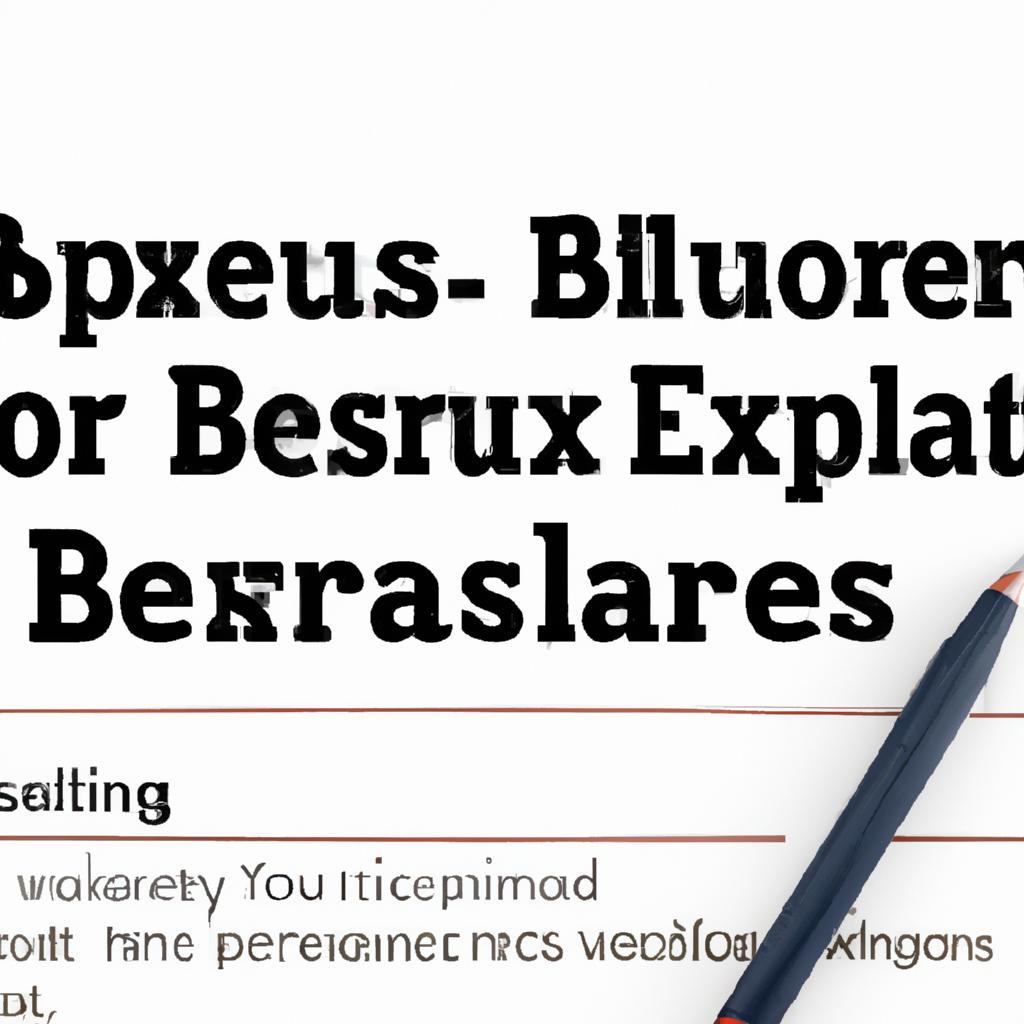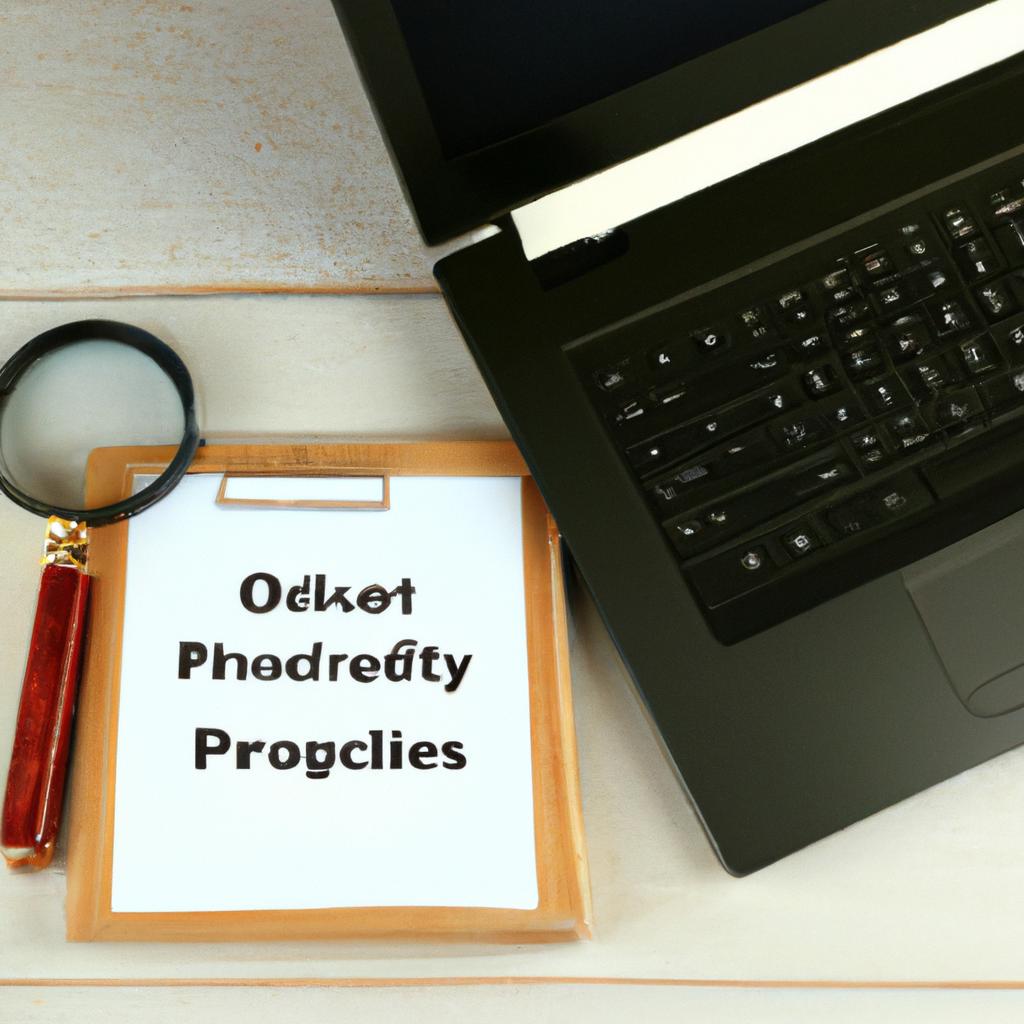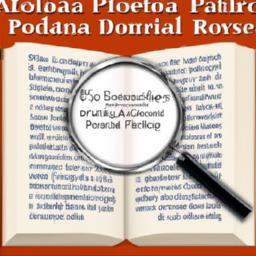In the digital age, locating probate records online has revolutionized the practice of estate planning and administration. As experienced counselors in the realm of probate law, we at Morgan Legal Group understand the importance of accessing these records efficiently and effectively. In this article, we will guide you through the intricate process of finding probate records online, providing you with the tools and knowledge necessary to navigate this essential aspect of estate management. Join us as we delve into the realm of digital probate research, leveraging technology to enhance our understanding and execution of the probate process.
Locating Probate Records on Government Websites
When looking to locate probate records online, government websites can be a valuable resource. These websites often provide access to a wealth of information regarding probate cases, including wills, estate inventories, and other important documents. By utilizing these resources, individuals can gain valuable insights into the probate process and better understand their rights and responsibilities.
One strategy for finding probate records on government websites is to start by visiting the official website of the probate court in the county where the individual passed away. Many probate courts now offer online access to their records, allowing individuals to search for specific cases by name, date, or other relevant information. Additionally, some state governments have centralized databases that allow users to search for probate records across multiple counties, making it easier to locate the information you need.

Utilizing Online Genealogy Platforms to Access Probate Records
When it comes to accessing probate records, online genealogy platforms can be a valuable resource for individuals seeking information on their ancestors’ estates. These platforms offer a wealth of historical records, including wills, inventories, and distribution lists, that can provide insight into the assets and liabilities of the deceased. By utilizing these online tools, individuals can uncover valuable information that may help them better understand their family history and inheritance.
One of the key advantages of using online genealogy platforms to access probate records is the convenience and accessibility they offer. Instead of having to visit multiple courthouses or archives in person, individuals can simply log in to their chosen platform from the comfort of their own home. Additionally, many online genealogy platforms offer advanced search features that make it easy to quickly locate specific probate records. By leveraging these tools, individuals can save time and effort in their search for ancestral estate information.

Exploring Subscription-Based Websites for Comprehensive Probate Search Results
Searching for probate records online can be a daunting task, but with the right tools and resources, you can find comprehensive search results quickly and efficiently. Subscription-based websites offer a wealth of information that can help you in your probate search, providing access to a wide range of records and documents that may not be available elsewhere. These websites often allow you to search by name, date, location, and other criteria, making it easier to find the information you need.
When exploring subscription-based websites for probate search results, be sure to consider the reputation and reliability of the site. Look for websites that are known for their accuracy and thoroughness in compiling probate records. Additionally, consider the cost of the subscription and whether it fits within your budget. By using these websites, you can save time and effort in your probate search, allowing you to focus on other important aspects of estate planning.

Tips for Efficiently Searching for Probate Records Online
One key tip for efficiently searching for probate records online is to utilize multiple online databases and resources. Each database may have different records or information available, so casting a wide net can increase your chances of finding the records you are looking for. Some popular online databases for probate records include Ancestry.com, FamilySearch.org, and FindAGrave.com. Additionally, many county or state websites may also have probate records available for search.
Another important tip is to use specific search terms and filters when searching for probate records online. In order to narrow down your search results and find relevant records, try using the deceased person’s full name, date of death, and location of death. You can also filter your search by probate court, date range, or specific document types. By using these specific search terms and filters, you can save time and easily locate the probate records you need for your research or legal matters.
| Website | Database |
|---|---|
| Ancestry.com | Wide range of genealogical records |
| FamilySearch.org | Free access to genealogy records |
| FindAGrave.com | Grave and burial records |
Q&A
Q: What are probate records?
A: Probate records are legal documents that determine the distribution of an individual’s assets after they pass away.
Q: Why are probate records important?
A: Probate records can provide valuable information about a person’s estate, including details about their property, debts, and heirs.
Q: Can probate records be accessed online?
A: Yes, many probate records are now available online, making it easier for people to research their family history or track down information about a deceased relative’s estate.
Q: How can I find probate records online?”>find probate records online?
A: There are several websites and databases that allow you to search for probate records by entering the name of the deceased individual and the location where they lived.
Q: Are probate records always public information?
A: Yes, probate records are generally considered public information, although certain details may be redacted to protect sensitive information.
Q: What can I expect to find in probate records?
A: Probate records typically include details about the deceased’s assets, debts, and beneficiaries, as well as any wills or other legal documents related to their estate.
Q: Are there any fees associated with accessing probate records online?
A: Some websites may charge a fee for accessing probate records, while others offer free or limited access to certain records. It’s important to research the available options before making a decision.
In Summary
As you navigate the world of probate research online, remember that patience and persistence are key. By following the steps outlined in this article, you can unlock a wealth of information about your ancestors and their estates. Whether you’re a genealogy enthusiast or a professional researcher, the treasure trove of probate records available online is sure to provide you with valuable insights and connections to the past. Happy hunting!
 Are you working on a genealogy project or trying to find information about your family history? One valuable resource that can provide a wealth of useful information is probate records. These records document the distribution of a deceased person’s assets and property and can provide crucial insight into their life and connections.
Are you working on a genealogy project or trying to find information about your family history? One valuable resource that can provide a wealth of useful information is probate records. These records document the distribution of a deceased person’s assets and property and can provide crucial insight into their life and connections.
But where can you find probate records online and how can you search them effectively? In this article, we will guide you through the process of finding and accessing probate records, so you can discover more about your ancestors and piece together your family tree.
What are probate records?
Probate records are legal documents that are created when a person passes away and their assets (such as property, bank accounts, investments, etc.) need to be distributed. These records are typically created by a court or government agency and can provide details about the deceased person’s estate, debts, and beneficiaries.
Why are probate records important for genealogy research?
Probate records can be valuable for genealogy research as they can provide insight into your family’s history, relationships, and even your ancestors’ social and economic status. Depending on the time period and location, probate records can also include wills, inventories, and other personal details that can give you a better understanding of your ancestors’ lives.
Where can you find probate records online?
1. State and county archives: Many states and counties have digitized their probate records and made them available online through their archives or genealogy websites. These archives may charge a fee for access to the records, but some may offer them for free.
2. Ancestry.com: Ancestry.com has a vast database of probate records from all over the United States, as well as other countries. A subscription is required to access these records, but it may be worth it for the extensive collection and user-friendly search options.
3. FamilySearch.org: FamilySearch.org, a free genealogy website, also has a large collection of probate records from around the world. These records can be accessed by creating a free account on the website.
4. Court websites: Some court websites have an online database that provides access to probate records. These records may be limited to a specific county or state, so it’s best to check the court’s website where the probate case was filed.
5. Online genealogy forums and websites: There are many online genealogy forums and websites that allow users to upload and share probate records. These forums are often free to access and can provide valuable information and connections for your research.
How to search for probate records online?
1. Start with what you know: It’s important to begin your search with any information you already have about the deceased person. This can include their full name, date of death, location, and any known relatives or associates.
2. Use different variations of the name: Names can often be spelled differently or have multiple variations. To ensure a comprehensive search, try using different variations of the name when searching for probate records.
3. Utilize search filters and advanced search options: Many online databases allow you to narrow down your search results by using filters such as date range, location, and record type. You can also use advanced search options to specify keywords, names, and other information.
4. Expand your search beyond just probate records: Sometimes, probate records may not be labeled as such in online databases. To avoid missing potential records, try searching for terms like “estate records,” “death records,” or “will records” as well.
Tips for using probate records in your research:
1. Look for multiple records: Don’t rely on one probate record for all the information about your ancestor. Make sure to search for multiple records, as different types of probate documents may provide varying details about the estate.
2. Verify the information: Probate records can contain errors, so it’s important to cross-check the information you find with other sources to ensure accuracy.
3. Note the relationships: Pay attention to the relationships between the deceased person and their heirs or beneficiaries, as these can provide clues about other family members or connections.
4. Keep a research log: As with any genealogy research, it’s essential to keep a log of your findings and sources. This will help you stay organized and keep track of any leads or information that you may want to revisit later.
In conclusion, probate records can be a valuable resource for genealogy research, providing insights into your ancestors’ lives and connections. With a little patience and the right tools, you can easily find and access these records online, and unlock a wealth of information about your family history. Happy searching!

